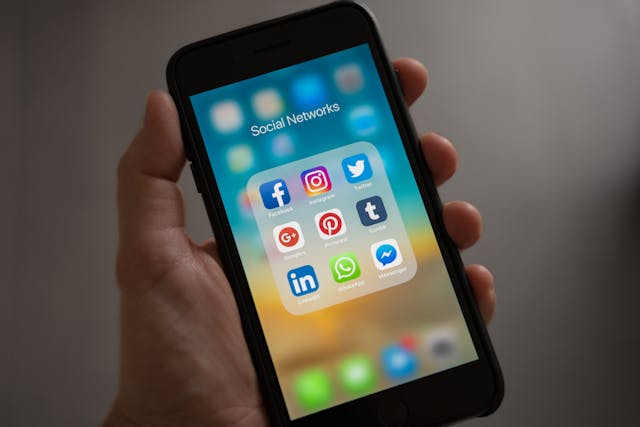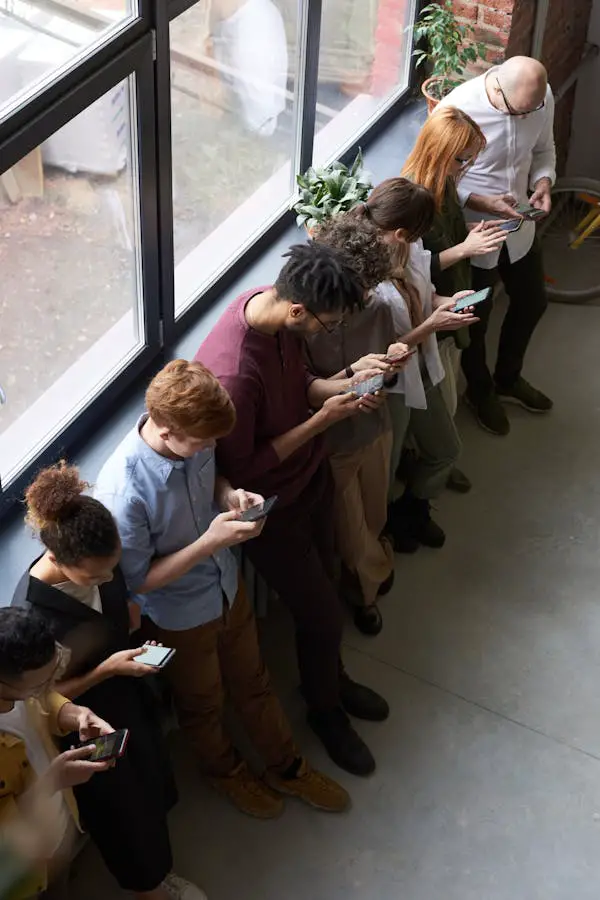
Social media has become an integral part of our daily lives, with billions of people worldwide using platforms like Facebook, Instagram, and Twitter to connect with others, share experiences, and stay informed.
While social media has many benefits, it also has a profound impact on our mental health.
In this article, we will explore both the positive and negative effects of social media on mental health, highlighting the importance of using these platforms mindfully.
The Positive Effects of Social Media
Social media, when used mindfully, can have several positive impacts on individuals and communities.
Here are ways in which social media can contribute positively to our lives:
Social connection and support
Social media platforms provide opportunities for people to connect with others who share similar interests, hobbies, or life experiences.
This sense of community can foster a feeling of belonging and support, which is crucial for mental well-being.
Whether through joining groups, participating in discussions, or reaching out to old friends, social media enables meaningful connections that can uplift spirits and provide emotional support during challenging times.
Self-esteem and identity exploration
Social media allows individuals to express themselves authentically and share their thoughts, beliefs, and experiences with a broader audience.
This can be empowering, particularly for those who may feel marginalized or isolated in their daily lives.
By connecting with like-minded individuals and communities, people can explore and celebrate their identities, find validation for their experiences, and build self-esteem.
Platforms that encourage self-expression, such as through creative content or personal narratives, can amplify diverse voices and promote acceptance and understanding.
Information and awareness
Social media serves as a powerful tool for raising awareness about important social and mental health issues.
Through sharing news articles, personal stories, and informative content, individuals and organizations can educate their networks and prompt discussions on topics that matter.
This accessibility to information can help dispel myths, reduce stigma, and provide resources and support to those in need.
From promoting mental health awareness campaigns to sharing resources for crisis intervention or support groups, social media can connect people to valuable information and services that contribute to overall well-being.
Professional networking and learning
For professionals and students alike, social media platforms offer opportunities for networking, career development, and continuous learning.
Platforms like LinkedIn provide avenues for connecting with peers and mentors, discovering job opportunities, and participating in industry discussions.
Additionally, educational content shared on platforms such as Twitter and YouTube can enhance knowledge and skills in various fields, making learning more accessible and interactive.
Community building and activism
Social media has empowered individuals and communities to organize, advocate for social justice, and drive positive change.
From grassroots movements to global campaigns, platforms like Facebook, Instagram, and Twitter enable people to mobilize support, raise funds, and amplify voices for causes they believe in.
This collective action fosters solidarity, drives awareness of societal issues, and encourages civic engagement among diverse groups.

The Negative Effects of Social Media
While social media offers numerous benefits, it also comes with certain negative effects that can impact mental health and well-being.
Here are some common challenges associated with social media use:
Social comparison and FOMO (Fear of Missing Out)
Social media platforms often portray idealized versions of people’s lives, showcasing only the highlights and positive moments.
This curated content can lead to unrealistic comparisons with others and feelings of inadequacy.
Individuals may perceive their own lives as less exciting or successful compared to what they see online, contributing to FOMO—a fear of missing out on experiences or opportunities that others seem to have.
This phenomenon can trigger anxiety and lower self-esteem, as people strive to measure up to unrealistic standards set by social media.
Anxiety and depression
The constant exposure to curated images and updates on social media can create pressure to maintain a perfect online image.
This pressure, combined with the need for likes, comments, and validation from others, can contribute to anxiety and feelings of inadequacy.
Moreover, negative interactions or comments online can escalate into cyberbullying or harassment, further impacting mental health.
Research has shown a correlation between heavy social media use and increased rates of anxiety, depression, and other mood disorders.
Cyberbullying and online harassment
Social media platforms can unfortunately become platforms for bullying, harassment, and intimidation.
Cyberbullying involves using digital communication channels to harass or threaten others, often anonymously or behind a screen.
Victims of cyberbullying may experience significant emotional distress, fear, and social isolation.
The pervasive nature of social media can make it difficult to escape from negative interactions, exacerbating the harm caused by online harassment.
Sleep disruption
The accessibility of social media through smartphones and other devices can disrupt sleep patterns.
Exposure to screens before bedtime, along with the temptation to check notifications throughout the night, can interfere with the quality and duration of sleep.
Poor sleep quality can lead to fatigue, irritability, difficulty concentrating, and overall decreased mental well-being.
Establishing boundaries around screen time and creating a relaxing bedtime routine are essential steps to mitigate these effects.

How to Use Social Media Mindfully
Social media can enrich our lives when used mindfully.
Here are practical tips to help you maintain a healthy relationship with social media while prioritizing your well-being:
Set boundaries
Establish clear boundaries for your social media use.
Determine specific times of day or duration for using platforms like Facebook, Instagram, or Twitter.
Setting these limits can prevent mindless scrolling and help you stay focused on other important aspects of your life.
Monitor your use
Keep track of how much time you spend on social media each day.
Reflect on whether your usage aligns with your goals and values.
Identify any patterns of overuse or reliance on social media for validation.
Being aware of your habits allows you to make intentional adjustments as needed.
Curate your feed
Create a positive and inspiring social media environment by following accounts that uplift and educate you.
Unfollow or mute accounts that consistently contribute to stress, anxiety, or negativity in your feed.
Curating your feed ensures that the content you consume aligns with your interests and promotes a more enjoyable experience online.
Take breaks
Regularly disconnect from social media to recharge and maintain perspective.
Engage in offline activities that bring you joy and fulfillment, such as hobbies, exercise, or spending quality time with loved ones.
Taking breaks from social media allows you to reconnect with the present moment and reduce the pressure of constant digital connectivity.
Validate information
Before sharing posts or reacting to content, verify the accuracy of information from credible sources.
Avoid spreading misinformation or contributing to online rumors and negativity.
Engage in constructive discussions and respect diverse viewpoints to promote a positive online community.
Monitor your emotions
Pay attention to how you feel while using social media. Notice any changes in your mood, self-esteem, or stress levels.
If you find that social media is affecting your mental health negatively, take steps to address it.
This may include reducing your usage, seeking support from friends or professionals, or engaging in activities that promote relaxation and well-being.
Set privacy settings
Review and adjust your privacy settings regularly to control who can see your posts and personal information.
Understand the platform’s policies on data privacy and security to protect your online presence.
Safeguarding your privacy enhances your sense of security while navigating social media platforms.
Prioritize real-life connections
While social media offers virtual connections, prioritize face-to-face interactions and real-life relationships.
Nurture meaningful connections with friends, family, and community members outside of social media.
Building strong relationships offline provides emotional support and enriches your overall well-being.

Conclusion
Social media has both positive and negative effects on mental health.
While it provides opportunities for connection, self-expression, and information, it also presents risks such as social comparison, anxiety, depression, cyberbullying, and sleep disruption.
By using social media mindfully and setting boundaries, we can minimize the negative effects and maximize the benefits.



